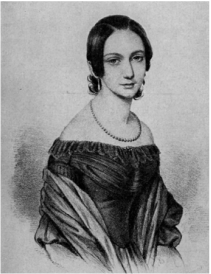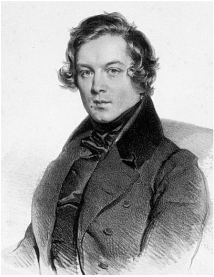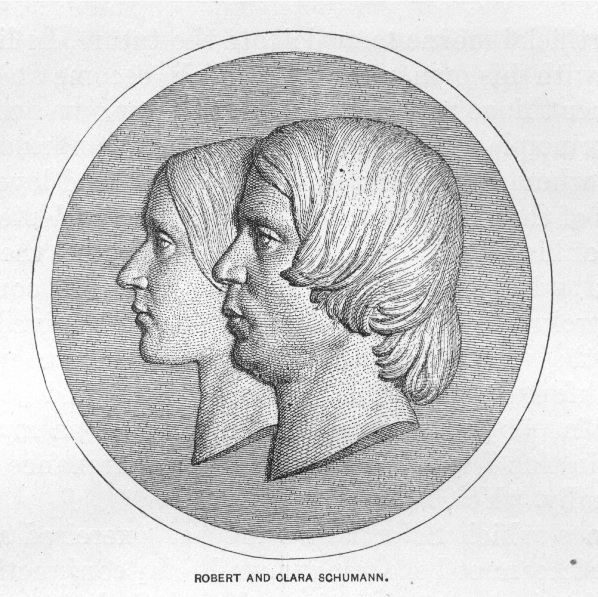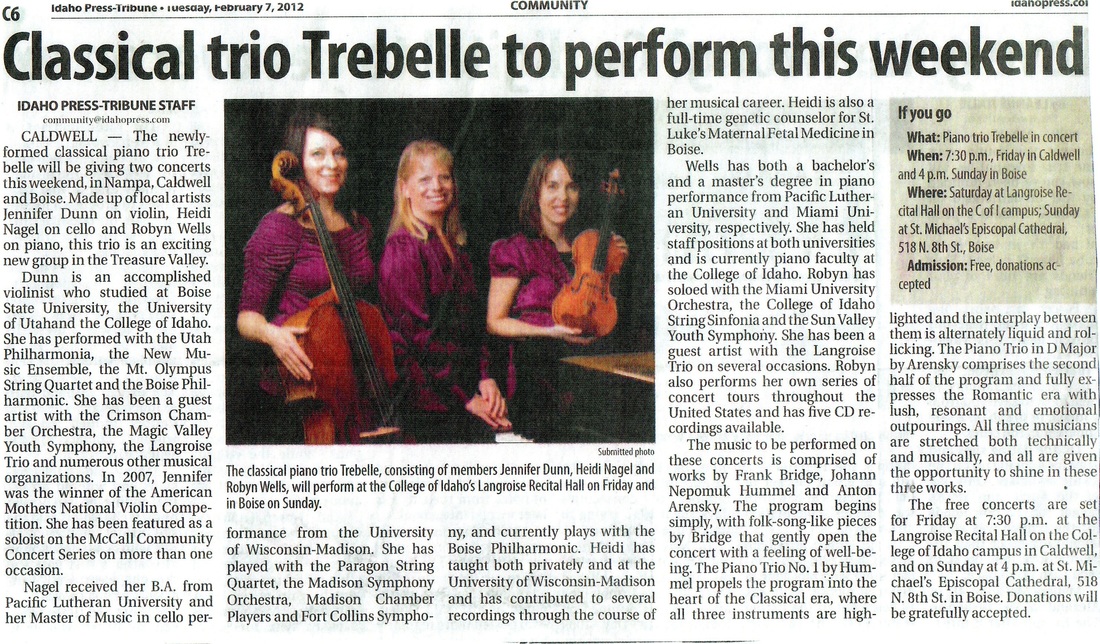|
Clara Wieck Schumann was one of the greatest pianists in the 19th century, a century that featured the likes of Frederick Chopin and Franz Liszt. Born to the famous soprano Marianne Tromlitz, and Friedrich Wieck, a prominent music teacher and businessman, Clara began her musical studies at a young age, and began concertizing by age nine. As a teenager, Clara fell in love with Robert Schumann, one of her father’s students, and a boarder at the Wieck home. Robert was nine years older than Clara, and her father greatly opposed their attachment. By law, Clara could not marry Robert without her father’s consent until she was 21 years old. Robert filed a lawsuit to marry Clara, which he finally won-- on the day before her 21st birthday.
Robert and Clara enjoyed many years of musical collaboration, and Robert encouraged Clara to compose. In their joint diary, he wrote, “Clara has composed a series of small pieces, which show a musical and tender ingenuity such as she has never attained before. But to have children, and a husband who is always living in the realm of imagination, does not go together with composing. She cannot work at it regularly, and I am often disturbed to think how many profound ideas are lost because she cannot work them out.” One year, Robert secretly published her songs, and surprised her with them on her birthday. Clara did not have confidence in herself as a composer, writing “I once believed that I possessed creative talent, but I have given up this idea; a woman must not desire to compose — there has never yet been one able to do it. Should I expect to be the one?" In spite of that, Clara also wrote, “Composing gives me great pleasure... there is nothing that surpasses the joy of creation, if only because through it one wins hours of self-forgetfulness, when one lives in a world of sound.” As their family grew (they had eight children!), and his health declined, Clara’s concertizing was put on hold, and she took over the entire management of the household. After his death in 1856, Clara resumed her musical career, devoting herself to the interpretation of her husband’s works until her own death in 1896. Robert Schumann was one the greatest composers of the Romantic period. As a child, Schumann possessed both music and literary talent, but after his father August Schumann, who supported his interest in music, passed away, his mother Johanna encouraged him to pursue a career in law. Schumann did study law, but at around 20 years old, he returned to his musical aspirations, studying piano with Friedrich Wieck, who saw great potential. During his studies, Schumann injured his right hand, ending his career as a pianist. He then began to focus his efforts on composing, often incorporating literary forms and themes, instead of traditional classical music forms. By this time, Schumann had fallen in love with Clara, and some of his compositions included musical cryptograms—the notes forming a code that represented his and Clara’s names. In 1834, he founded Die Neue Zeitschrift für Musik ("New Journal for Music"), for which he wrote numerous articles and reviews, and promoted up-and-coming artists. In 1840, Robert and Clara were finally able to marry. Inspired by his love and newfound happiness, Schumann composed 168 songs in that year alone, including Widmung, or “Dedication,” which he wrote in homage to Clara. Robert and Clara enjoyed a happy and productive marriage for many years, until symptoms of depression returned, along with tinnitus, hallucinations and anxiety. In 1854, he tried to commit suicide by throwing himself into the Rhine River, but he was rescued by boatmen. He asked to be admitted into an insane asylum, where he stayed for the rest of his life. He was not permitted to see Clara during this time but once, just two days before his death in 1856. Schumann’s music would likely have fallen out of favor and been lost if not for Clara, who worked tirelessly to promote his music by performing it, and editing it for publication, forever tying her legacy to his. |




 RSS Feed
RSS Feed